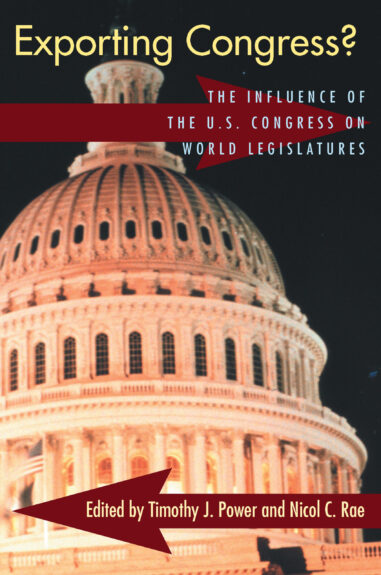
Paperback $55.00
Also available in Kindle
Request Exam or Desk Copy. Request Review Copy
Exporting Congress?
The Influence of U.S. Congress on World Legislatures
Because the U.S. looms so large among the nations of the world and the highly transformative U.S. Congress is so powerful within its now venerably stable constitutional order, the expectation naturally arises that other, newer nations will seek to model their legislative institutions on at least some aspects of U.S. practice. The authors of this book have provided a fair test of this expectation in numerous settings, and report largely negative findings. Along the way, however, a reader can gain much focused information about forces shaping the formation of contemporary legislatures all over the globe.

